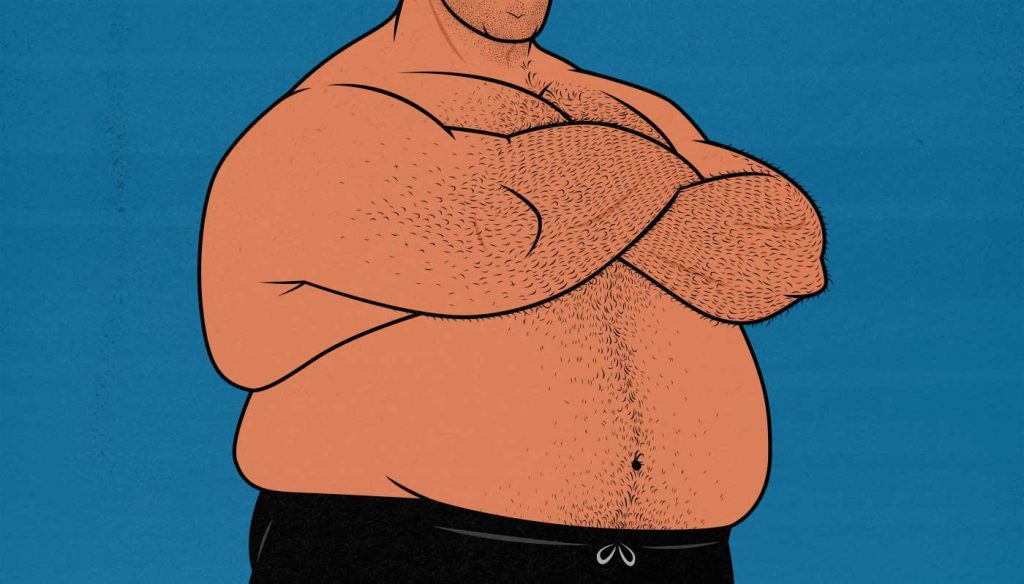
Does Bulking Make You Fat?
Bulking can make you fat if you gain weight too aggressively for too long. Eating in a calorie surplus is great for building muscle, but any calories that aren’t invested into muscle growth will spill over into fat gain.
If you’re eating so much food that you’re gaining fat, you might notice, but the changes happen so gradually that many people don’t. In our program, we solve this by having you weigh yourself every week and take new body measurements and progress photos every 5th week. We review those photos together, and we adjust your rate of weight gain.
Other guys like the extra size. They like filling out their clothes. They know they’re gaining fat, but they don’t care, so they keep eating in an aggressive surplus. I don’t have any issue with that. Most of these people never get fat enough to cause a health problem. It’s a purely cosmetic issue, and they prefer how they look when they’re bigger.
If you’re worried about gaining fat, you can do a lean bulk. If you’re already fat, the news is even better. You might be able to lose fat while building muscle.
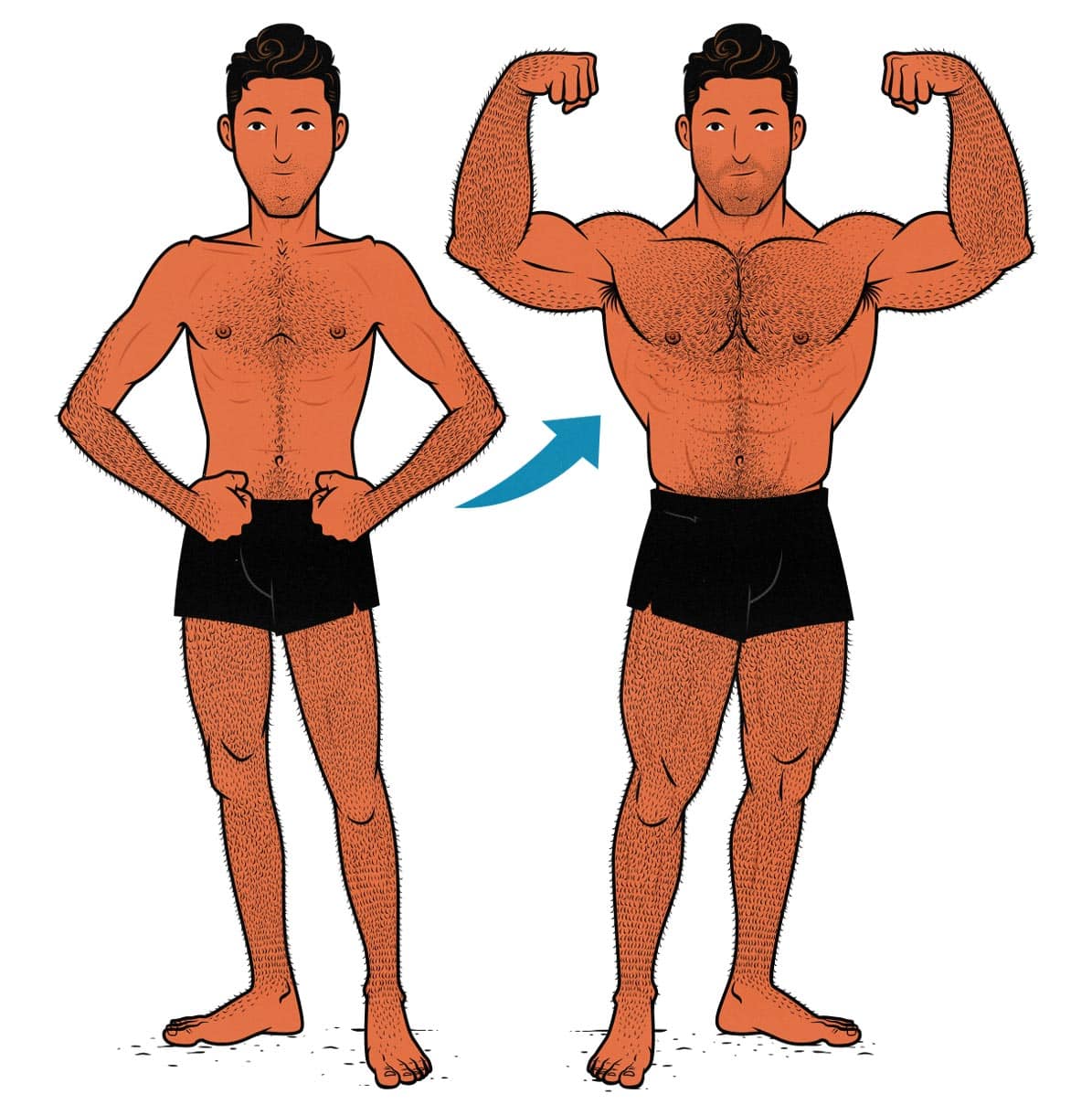
How Much Fat Will You Gain While Bulking?
Not everyone needs to bulk. Overweight beginners can gain muscle while losing fat (body recomposition). Lifting weights stimulates muscle growth, and they can use their body fat to get the energy they need to build muscle. They can do this while eating in a slight calorie deficit, at maintenance, or even in a slight calorie surplus—while doing a very slow, lean bulk.
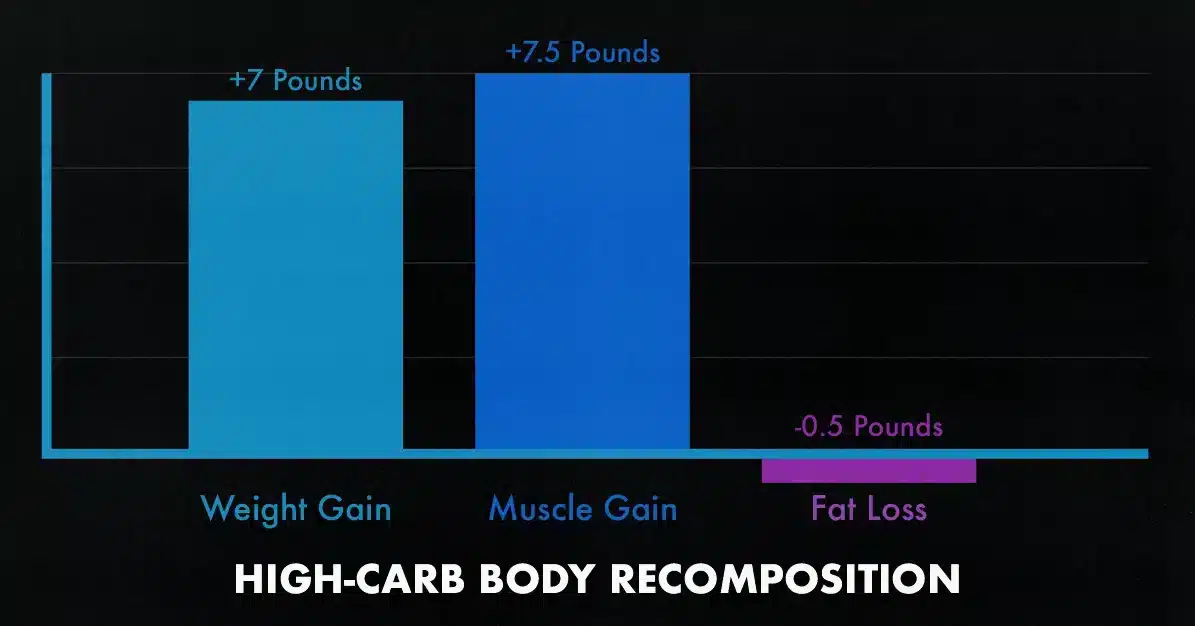
Sometimes, people lose fat while bulking quite quickly. For example, in this study, the researchers had a bunch of beginners eat a good bulking diet while following a rigorous hypertrophy training routine. After eight weeks, they’d gained 7.5 pounds of muscle while losing a small amount of fat.
In another study, the researchers compared different bulking diets on intermediate bodybuilders (who could bench press around 225 pounds for a single repetition). The guys bulking with a more conventional bulking diet gained 11 pounds of muscle while losing 4 pounds of fat (study).
However, if you’re thin, lean, or already in the habit of lifting weights, body recomposition becomes much less likely. You’ll probably need to gain weight to build muscle, and with that weight gain, there’s the risk of gaining fat (full explanation).
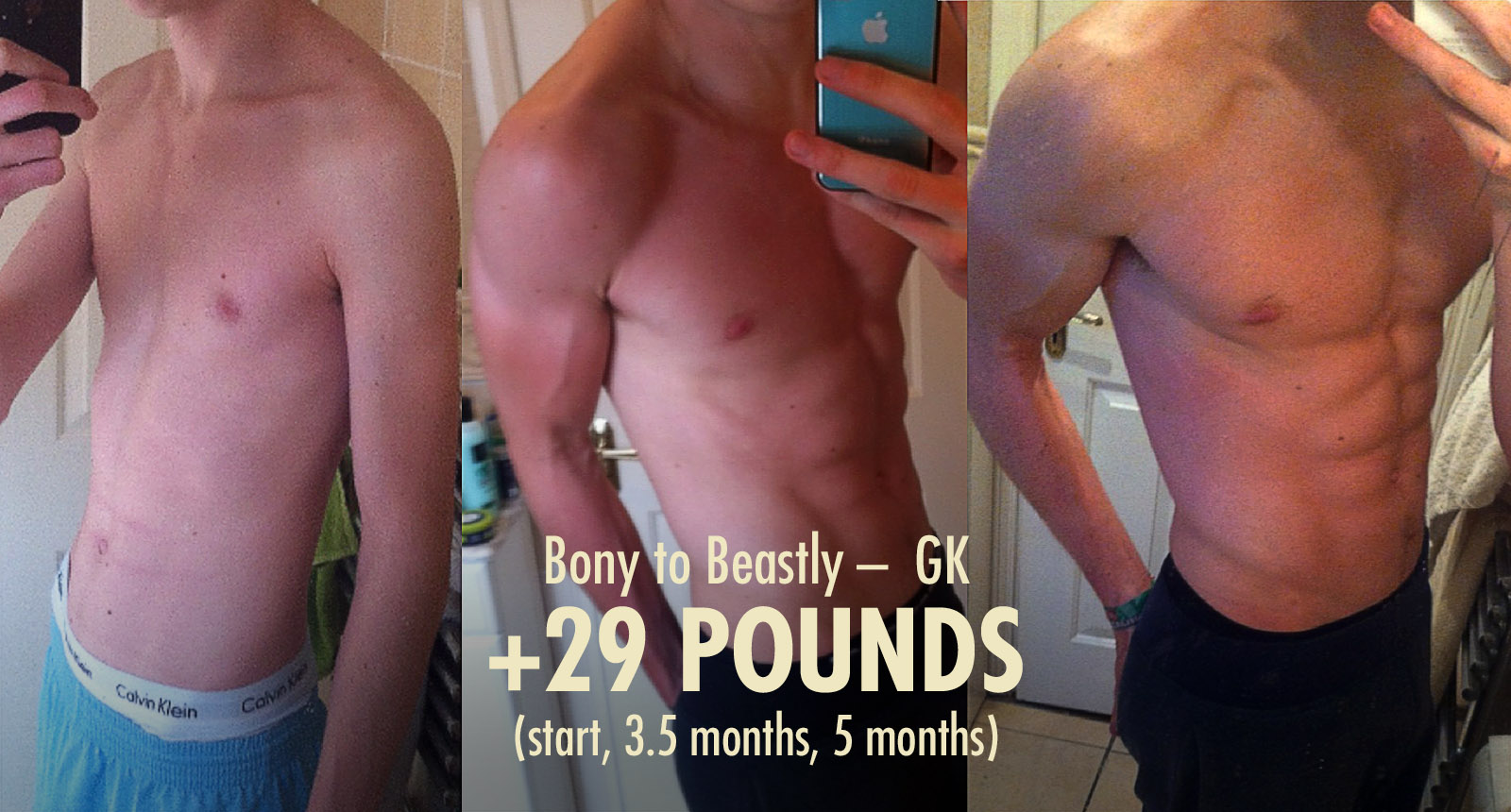
Even then, you might be able to bulk up quite leanly. I didn’t gain a noticeable amount of fat while gaining my first 40 pounds. Many of the guys doing our bulking program get relatively lean gains, too. Some of those guys weren’t even trying to bulk leanly. They just did a really good job of bulking aggressively.
The Biggest Mistake
One of the most common bulking mistakes is to be so scared of gaining fat that you fail to gain weight. If you’re 130 pounds, the only way to get up to 180 pounds is to gain weight. There’s no other path there. You have to bulk.
But bulking has nuance. Any extra calories that aren’t invested into muscle growth will spill over into fat gain. So, if you aren’t paying attention, you can gain weight too quickly, winding up with extra body fat. You can burn that fat off, which is effortless for most people who need to bulk, but it can still be frustrating.
To make things even trickier, many factors affect the ratio of muscle and fat you gain, including your workout program, your bulking diet, your genetics, and even your sleep habits. It’s possible to bulk at a reasonable pace and still gain extra fat.
If you notice fat gain, does that mean you’re doing something wrong? How much fat should you expect to gain while bulking?
Focus on Gaining Muscle
The main purpose of bulking is to gain muscle size and strength. The secondary goal is to limit fat gain, but if some fat comes along for the ride, it’s not the end of the world. It’s fairly easy to get rid of any fat you gain, especially if you’re naturally thin and especially if there isn’t that much of it.
Most skinny people have the opposite problem. They’re so nervous about gaining fat that they fail to eat enough calories, preventing muscle growth. If you’re like me, starting off at 130 pounds, then the best path forward is to do a bonafide bulk, focusing on gaining weight, getting stronger, and getting bigger.
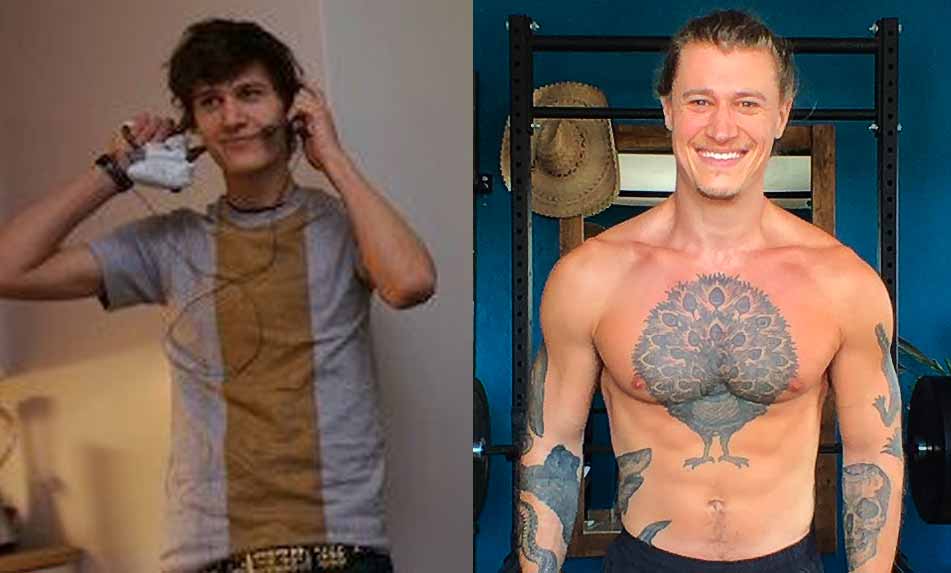
If you notice a bit of fat gain, that’s okay. The trick is to ensure you aren’t gaining fat needlessly and never get so fat that it begins to harm your health (or appearance).
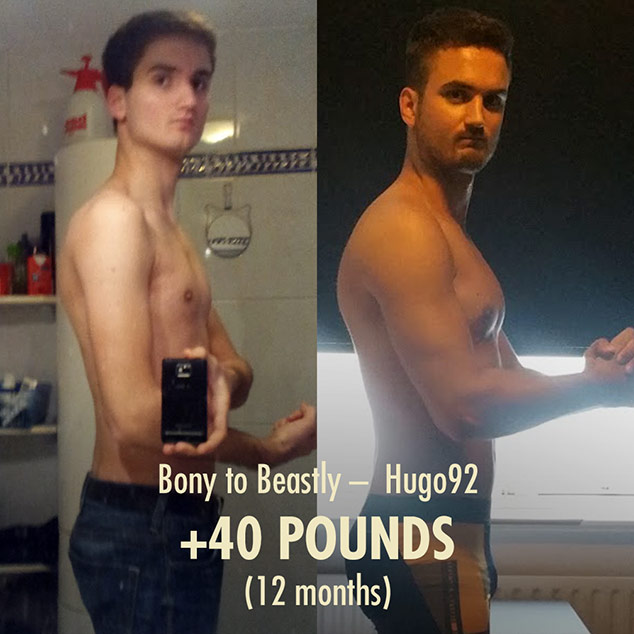
For instance, Hugo spent a few months bulking up, focused on getting bigger and stronger. He gained a bit of fat while doing it, so he spent a couple of months cutting afterwards. By the end of the year, he was up 40 pounds and looked leaner than when he started. This is the power of bulking. It allows for fast muscle gain.
During my most disastrous dreamer bulk, I stupidly gained around 25 pounds of fat, but I also broke all my personal strength records. That fat is long gone, and I still have the muscle I gained. The only real downside was needing to spend 3 months cutting. I don’t recommend that approach, but it’s nothing to be afraid of. Most skinny guys are able to burn fat quite easily.
If you’re gaining 0.25–1 pound per week, and if you’re gradually adding weight or reps to your big compound lifts, then your bulk is going well. You don’t need to stress. If you notice some fat gain, slow down, but keep going. Keep gaining weight and getting stronger.
Gaining Fat Doesn’t Mean Being Fat
Just because you’re gaining fat doesn’t mean you’ll become fat. If you’re a lean guy now, gaining another 5–10 pounds of fat won’t make you fat. You’ll still be lean. You’ll just be a little bit less lean. It will still look good and be healthy. There’s no real harm to it.
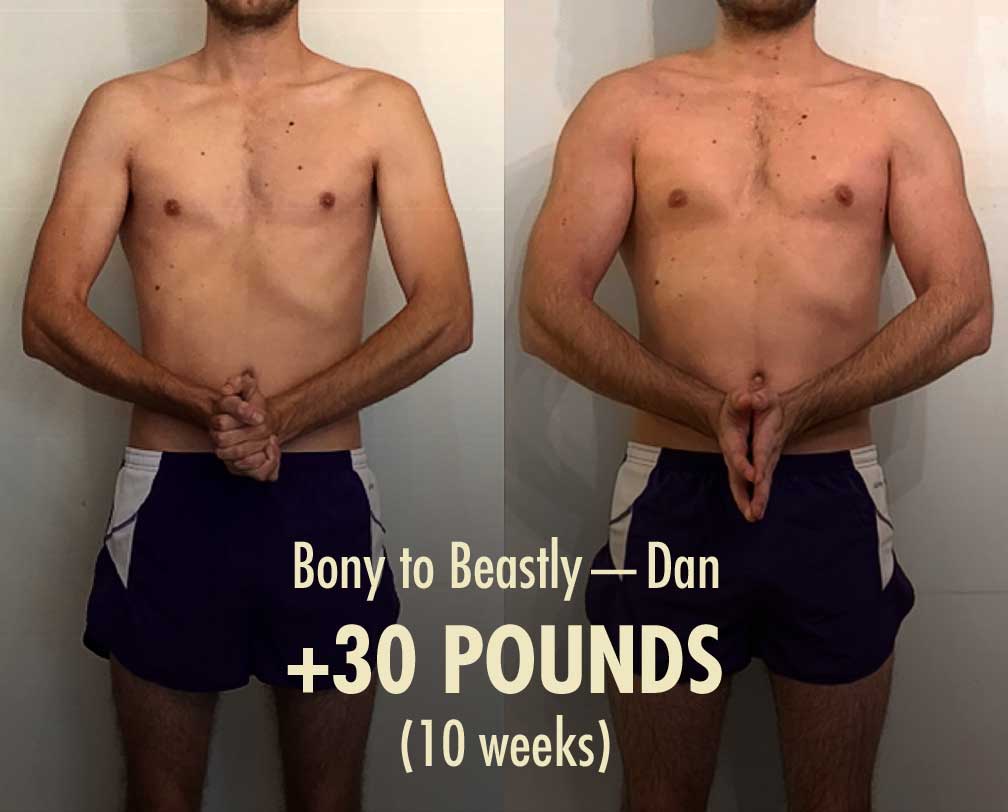
For example, Dan bulked aggressively, gaining an impressive amount of muscle but also gaining some fat. You can see both the muscle gains and fat gains quite clearly. The extra muscle looks great, and he’s still got a healthy amount of fat. There’s no real downside here.
The trouble is when people drive their body fat percentage too high. If you start off skinny-fat and gain 20–30 pounds of fat, you’ll become overweight. You might not like how it looks. It may harm your health. So it’s best to stop bulking long before that happens.
How Fat is Too Fat?
A good rule of thumb is to stop bulking before your waist circumference swells to 36 inches. The NIH recommends keeping your waist circumference under 40 inches (study). The idea is to make sure we aren’t accumulating too much visceral fat around our organs. So we can play it extra safe, stopping a few inches shy of that.
Also, keep in mind that lifting weights, doing some cardio, eating a good bulking diet, and living a healthy lifestyle reduces the proportion of visceral fat you gain. A good bulking program not only gives you the health benefits of being stronger, fitter, and more muscular, but it also helps ward off the harm of gaining fat. (More of the fat you gain will be subcutaneous, which isn’t nearly as harmful.)
Should You Cut Before Bulking?
If you’re overweight, you should start with a cut. Get rid of the extra fat first. If you follow a good workout and diet program, you’ll be able to build muscle even while you’re burning fat. Then, once you’re lean and healthy, you can gear into a slow, lean bulk.
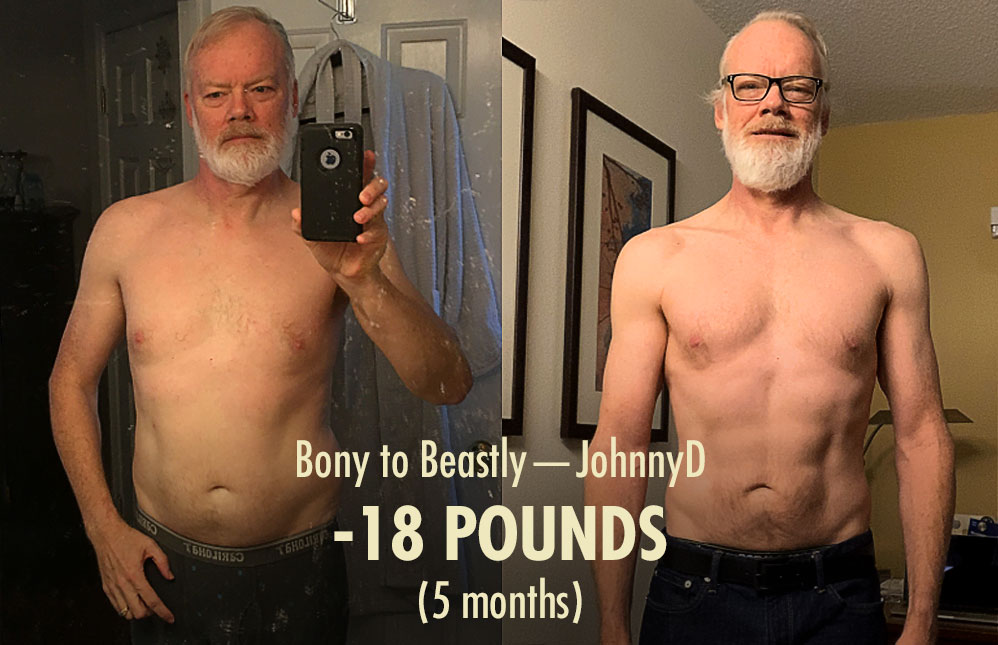
If you’re skinny fat, you’ve got options. You aren’t overweight, so you don’t necessarily need to cut. You can if you want, but you don’t need to. Here’s our article about what to do if you’re skinny-fat.
If you’re relatively lean or thin, you don’t need to cut. Being healthfully lean is great. Being leaner than that doesn’t tend to help. There’s no need to cut down from 16% to 12%. You’ll build muscle faster and more leanly if you start bulking at your current body fat percentage.
What Ratio of Muscle to Fat Should You Gain?
But you’ll probably gain at least a little bit of fat. Most studies, even when a good diet is combined with a good workout program, find that most people gain at least a little bit of fat while bulking. This is especially true if you’re an intermediate lifter and you’ve already gotten your newbie gains.
The common rule of thumb is that at least half of your gains should be muscle. However, you can adjust that ratio to suit your goals. You could bulk far more leanly than that if you wanted. Maybe if you’re an experienced lifter, you’re happy to gain a couple of pounds of muscle, even if it comes along with a dozen pounds of fat.
The trick is to make sure you’re following a good bulking program and getting measurable results:
- Are you gaining weight at a reasonable pace?
- Are you progressively overloading your lifts, adding weight and/or reps over time?
- Is your shoulder circumference growing faster than your waist circumference?
- Are you growing in the places you want to grow?
If you answer yes to all of these questions, you’re doing great. There’s no need to worry.
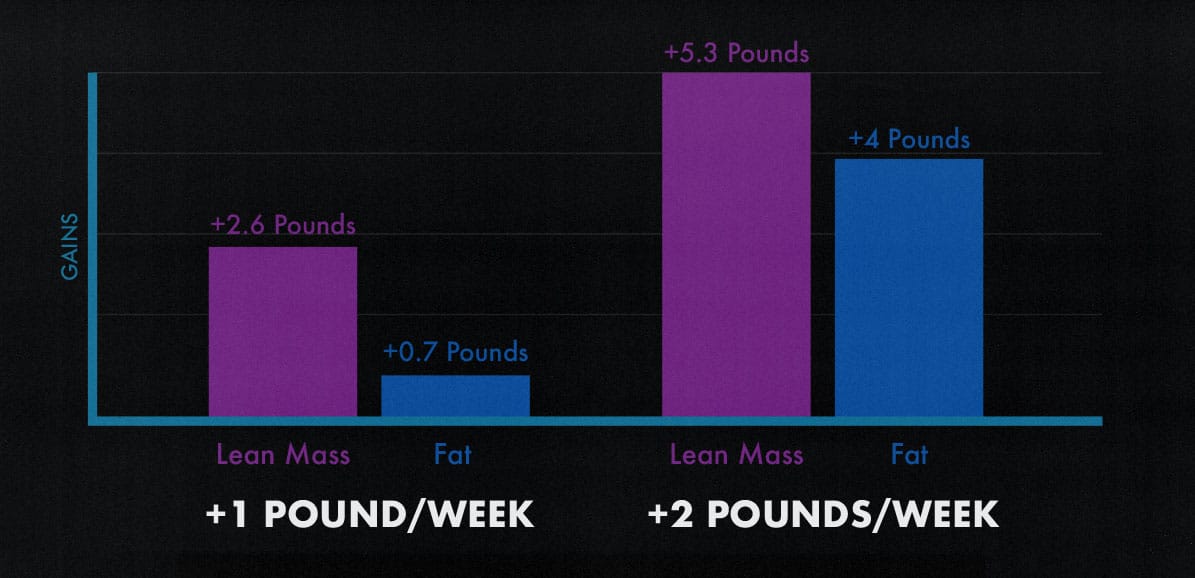
In a study by Ribeiro and colleagues, the group gaining two pounds per week built twice as much muscle as the group gaining one pound. However, they also gained six times as much fat. Which group got better results? It all depends on what you want.
Summary
Bulking won’t make you fat unless you’re careless (or do it on purpose). Most skinny beginners are able to bulk quite leanly. If you’re gaining 67–100% muscle, you’re doing great. If you’re gaining more fat than that, you might want to slow your bulk down.
When you’re an intermediate or advanced lifter, you might be willing to accept a lower proportion of muscle growth if it helps you get through strength plateaus. A 50–50 ratio of muscle and fat gain is perfectly fine. You might be able to do better. But even if you do worse, progress is still progress.
If you’re overweight or skinny fat, you can build muscle without gaining any fat at all. You can do that by either losing weight or keeping your weight stable. That isn’t bulking, though. When you switch to bulking, you may start gaining a small amount of fat.

Alright, that’s it for now. If you want more muscle-building information, we have a free bulking newsletter for skinny guys. If you want a full foundational bulking program, including a 5-month full-body workout routine, diet guide, recipe book, and online coaching, check out our Bony to Beastly Bulking Program. Or, if you want a customizable intermediate bulking program, check out our Outlift Program.


Muscle-Building Mini-Course via EMAIL
Sign up for our 5-part muscle-building mini-course that covers everything you need to know about:
Here are some related articles